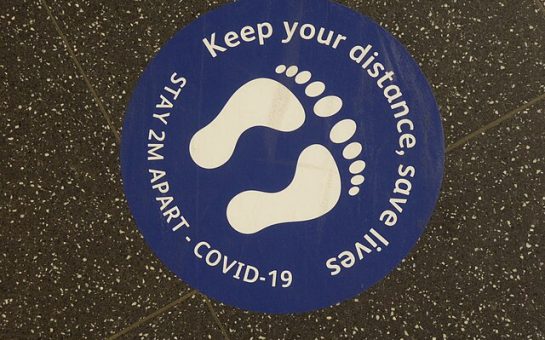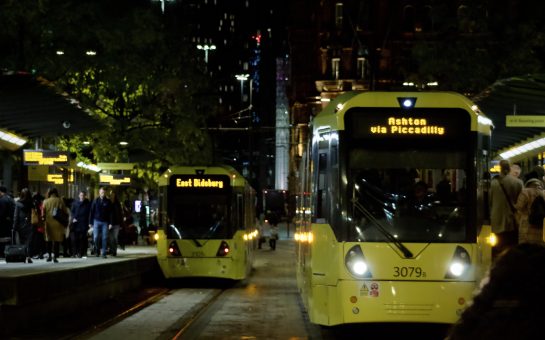It will have been six months since many children were in a classroom when schools in England re-open in September, but with the coronavirus outbreak far from over, some parents and teachers are feeling anxious about this next step back to relative-normality.
The government have said it is their plan that pupils in all year groups must return to school next month and Boris Johnson has made it clear that this is non-negotiable.
Writing in The Mail on Sunday, Mr Johnson said it is his “national priority” to get children back to school, stating: “now that we know enough to reopen schools to all pupils safely, we have a moral duty to do so.”
However, many parents and carers are feeling anxious about this next stage, according to a recent survey by the Office of National Statistics (ONS).
When asked how worried people were about their children or young people returning to school or college when the new term begins, 65% said they were very worried or somewhat worried.
Of those who responded, 61% said they were worried about their children catching the coronavirus while at school and 48% said they were worried about social distancing not being enforced.
Not all parents are apprehensive; Pamela Miller, mum to Caitlin, 15, and Ben, 13, is feeling reasonably relaxed about her children going back to school:
“I’m quite comfortable with them going back in September. Our school have been very organised throughout and I’m in no doubt they’ll keep the children safe,” she told us.
However, she did think they learnt more during lockdown and said both her children enjoyed learning from home more than in the classroom:
“There’s no distractions; they both did really well with it and were happier because they could manage work themselves and do it when they felt like it,” said Mrs Miller, who also acknowledged her children’s privileged position and understands that it’s important to have children in schools:
“Not all kids are as lucky as ours with parental support, their own technology and quiet spaces to study.
“There are social aspects such as keeping an eye-out for vulnerable kids and making sure they’re fed and healthy,” she said.
Confidence in the situation appears to depend very much on the individual school: it’s size, quality of communication, and how well they are able to accommodate all pupils and teachers safely with social-distancing.
Education Secretary, Gavin Williamson, has said that there is little evidence of coronavirus being transmitted in schools and research has shown that children are much less likely to become ill with the virus.
However, there is less clear research on how adults in schools are affected, so what does this mean for the teachers and support staff?
MM spoke to a secondary school teacher who told us she is feeling very anxious about her return to work in September, particularly since the Prime Minister announced all pupils must return to school full-time.
The teacher, who did not want to be named, said: “I felt much more confident about going back under my school’s initial plans – before Boris said everyone had to be back full time – which was a staggered, blended approach with a mix of in-school learning and live lessons so that we could have some social distancing.”
However, running her school at full-capacity means social distancing is impossible:
She said: “We will go back at full-capacity, with no social distancing, no masks and poorly ventilated classrooms.
“I’m back to teaching a class of 32 in a small room which is quite scary,” she told MM.
The ONS survey said that some parents are concerned about the emotional impact of returning to school, with 35% saying they are worried about the impact on mental health and well-being due to the changes in schools and colleges because of the coronavirus.
However, those we spoke to are more concerned about the mental health impact of children not returning to school.
“I’m quite torn – six months is so long for kids to be out of education and I know what a detrimental effect it has already had on so many kids in terms of progress, engagement with school and their mental health,” the teacher we spoke to said.
This is a feeling shared by Helen from Greater Manchester has been shielding since the lockdown began as a result of fibrosis of the lungs due to radiotherapy.
In September her five-year-old daughter, Everly, will be heading back to school for the first time in six-months.
“Initially I was apprehensive as there is still a lot of unanswered questions with Covid-19 and how it’s transferred between children,” she said.
However, Helen is having to weigh up the risks of catching the coronavirus against the social and developmental effects being off school is having on her child:
“As time goes on I am more worried about Everly’s mental health and her missing out on education – I’ve noticed changes in her attitude and attention span,” she said.
Sending children back to school next term is no-doubt causing anxiety for all those involved, but whether or not they agree, the government has decided this will be happening.
Helen will be taking steps to ensure her family stay as safe as they can: “I myself will take extra precautions at home too, clean uniform each day, shoes and hands sanitized at the front door,” she said, adding a thought shared by many around the country at the moment:
“As scary as the pandemic is, life can’t be put on hold indefinitely.”



